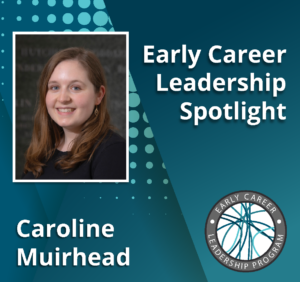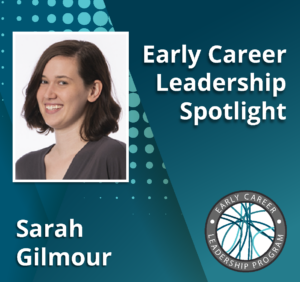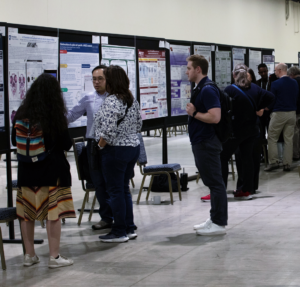We’re taking time to get to know the members of the GSA’s Early Career Scientist Committees. Join us to learn more about our early career scientist advocates.
Eshna Jash
Multimedia Subcommittee
University of Michigan
Research Interest
Since my first genetics class as an undergraduate, I have been fascinated by how genomes can be so complexly regulated to create the diversity we see around us every day. One of the common methods to regulate the genome is by turning genes on and off by depositing epigenetic marks on DNA. A protein that can control this deposition, the condensin complex, is highly conserved among eukaryotes and is best known for its function in condensing the chromatin during cell division. However, it has important roles in regulating the genome during interphase that are not very well understood.
The subject of my PhD thesis is this interphase gene regulation by the condensin complex and its interplay with a transcription factor. I study this mechanism in C. elegans, a model organism that has a unique third condensin complex in addition to the two found in all other eukaryotes. This unique condensin complex is important for regulating gene transcription on the two X chromosomes of the hermaphrodite worm, a form of dosage compensation. I use a combination of bioinformatics and genetic techniques to decipher the mechanism through which this pathway works.
As a PhD-trained scientist, you have many career options. What interests you the most?
I would love a career that lets me solve complex scientific problems with a dash of creative thinking. Therefore, I plan to pursue a career as a scientist in the biotechnology and healthcare industry. Every day in academia, new discoveries are made: novel modes of therapy, insights into deadly diseases, and platforms for entirely new therapeutic modalities. Only a small fraction of these makes it through the process of clinical trials and commercialization. Most innovations fail to reach this end point and are lost. This phenomenon is called the “valley of death,” and it represents many lost opportunities.
I want to work towards pushing new innovations to market. For two years, I have been part of miLEAD Consulting, a graduate student-run organization at the University of Michigan that provides consulting services to start-ups. Through this organization, I have worked with several biotech therapeutic and diagnostic start-ups learning the ins and outs of how to successfully introduce a new technology to commercialization. I’ve also worked with Nucleate, a graduate student-led start-up incubator based out of Boston, which provides mentorship and financial support to emerging biotech start-ups.
Using my technical expertise from my PhD research in genetics and gene regulation—as well as the business soft-skills acquired through working with non-academic biotech organizations, like the Genetics Society of America—I’m building the foundations necessary to work on complex scientific problems, bring novel innovations out of the academic labs, and make them available to the public. My greatest goal is for my work to make a direct impact on the lives of people, and I believe a career in the biotech industry would be the best way to make this happen.
In addition to your research, how do you want to advance the scientific enterprise?
I think one of the biggest obstacles facing the scientific enterprise right now is the inability of scientists to communicate with non-scientists about their work in a meaningful way. Scientists are taught the language of their respective fields very early in their careers and learn to only communicate their science within a bubble. I sometimes struggle to understand talks given by scientists outside my field, and I know I am not alone in this alienating experience. The public’s understanding of science and what it has done to revolutionize our world is a fundamental building block on which our continued collective investment in research rests. For this reason, I’m very passionate about furthering science communication to the public through my work both within and outside of the GSA.
As a woman in STEM and a POC, I am also passionate about fostering an open and accepting space for diversity within STEM. Science is ultimately stronger with diverse viewpoints. Just as people before me have paved the way for someone with my background to be able to succeed in science, I intend to take every opportunity to do the same during my career.
As a leader within the Genetics Society of America, what do you hope to accomplish?
My goal in joining the Genetics Society of America is to be able to communicate and collaborate with the wider scientific community. I hope to meet scientists from various walks of life and do interesting things in diverse areas of biology that I’ve never considered. I hope to learn about new areas of biology and teach people about my own. I would like to gain transferable soft skills through this experience that will help me achieve more in my career than I can with just my technical training.
As a member of the Multimedia Subcommittee, I aim to help scientists tell the world about their research through the use of new forms of media, such as podcasts and videos. These emerging new formats provide a new opportunity for researchers to communicate their science to a new and much wider audience.
Previous leadership experience
Co-chair of Admissions and Recruitment, MCDB Graduate Student Committee, University of Michigan
Project Manager and Consultant, miLEAD Consulting, University of Michigan
Founding Member, Nucleate Michigan





